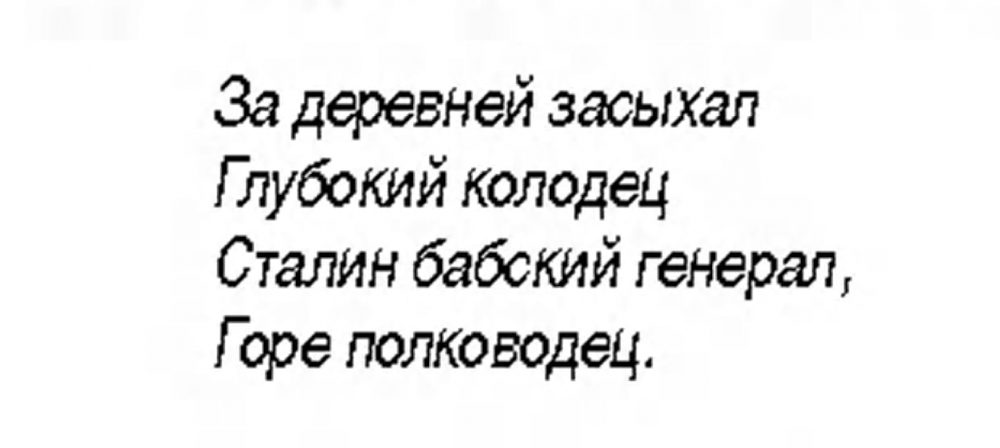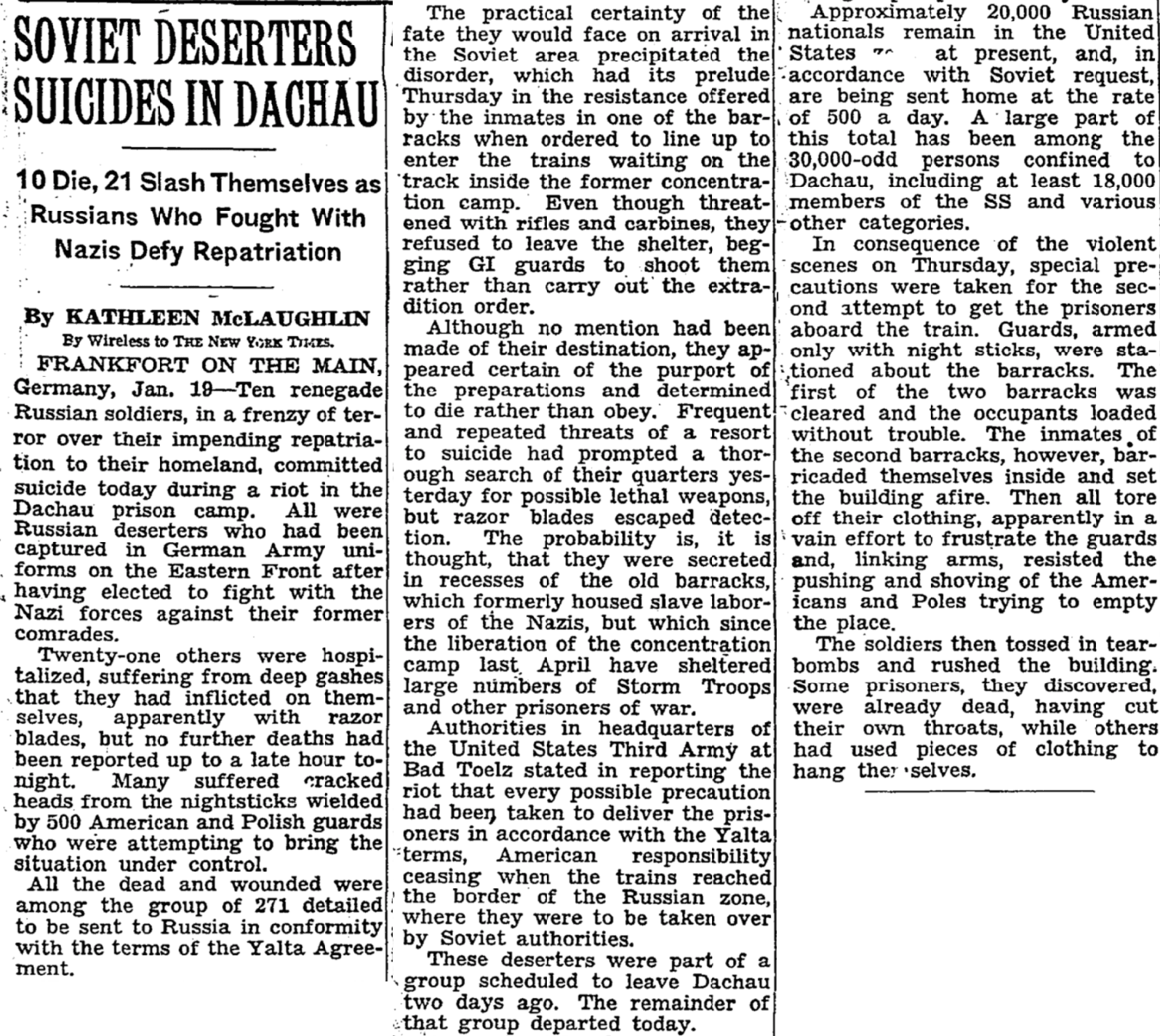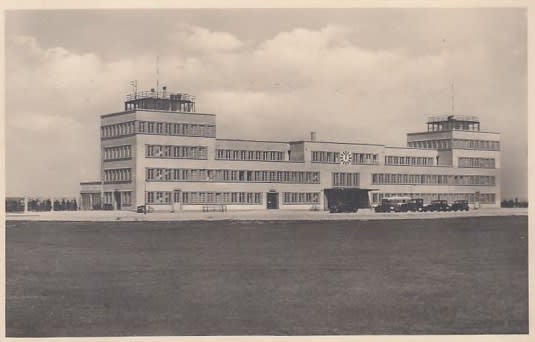Immigrants as a weapon: A portrait of a Soviet CIA propagandist as a Nazi collaborator young man
Yasha Levine
"This is Radio Liberation speaking, the free voice of your compatriots abroad."
Read about the idea behind project and subscribe.
The date is April 28, 1953. The location: Lampertheim, Germany — a small town south of Frankfurt.
An American technician sitting in heavily guarded military radio facility turns on one of the most powerful radio transmitters in the world. He checks the dials, makes a few final calibrations, and then hits play on a big magnetic tape that had just been delivered to him by train and motorcycle courier from Munich.
First there’s nothing but static. Then a female voice kicks in — an announcer speaking Russian: “This is Radio Liberation speaking. We are transmitting a statement made by a war veteran who escaped to the west in 1946.”
More static. Then a man’s voice comes on — slow and speaking in an affected provincial Russian accent.
The man then proceeds to tell his story. He says he had fought the Nazis in World War II, had his arm blown off in battle, and returned not as a hero but as an impoverished cripple who could not survive on his Soviet war veteran pension. “You know yourself how badly invalids have it here in our socialist fatherland. There’s nothing to eat and no prosthetics. The pension’s not even enough to buy tobacco on. So I adapted.”
He says he started doing a bit of odd commerce, like buying sunflower seeds on the cheap in Ukraine and taking the train to a far off city in Russia to sell them on the street for a bit of profit. This was illegal. And day, he got caught. “In Odessa, police raided us invalids like a pack of dogs. We grabbed our crutches and fought back.”
Fearful of being sent to a labor camps, he says he decided to flee west. “It was hard, but I got here. Now I live in Canada. I work in a lumber plant and the doctors here gave me amazing prosthetic. It’s like they gave me a new arm! If only our invalids had such glorious prosthetics!”
He finishes his story by congratulating listeners on the recent death of Comrade Stalin but says that Stalin’s death is not nearly enough. All the Bolsheviks must go: “While in Stalin’s hooligans are in the Kremlin, there will no life for anyone!”
It was a good story — а story of socialist betrayal, capitalist redemption, and hope for the future of the Soviet people. But the whole thing was a lie.
The man on the tape wasn’t an armless war veteran, nor was he living in Canada. And he sure didn’t work at a lumber mill.
He was a Soviet refugee and a Nazi collaborator — a musician and comedian known for his irresistible charisma and his hard partying and womanizing. He lived in Munich and went by the name of Leonid Pylaev. Oh, and what else? That’s right. He worked for the CIA.
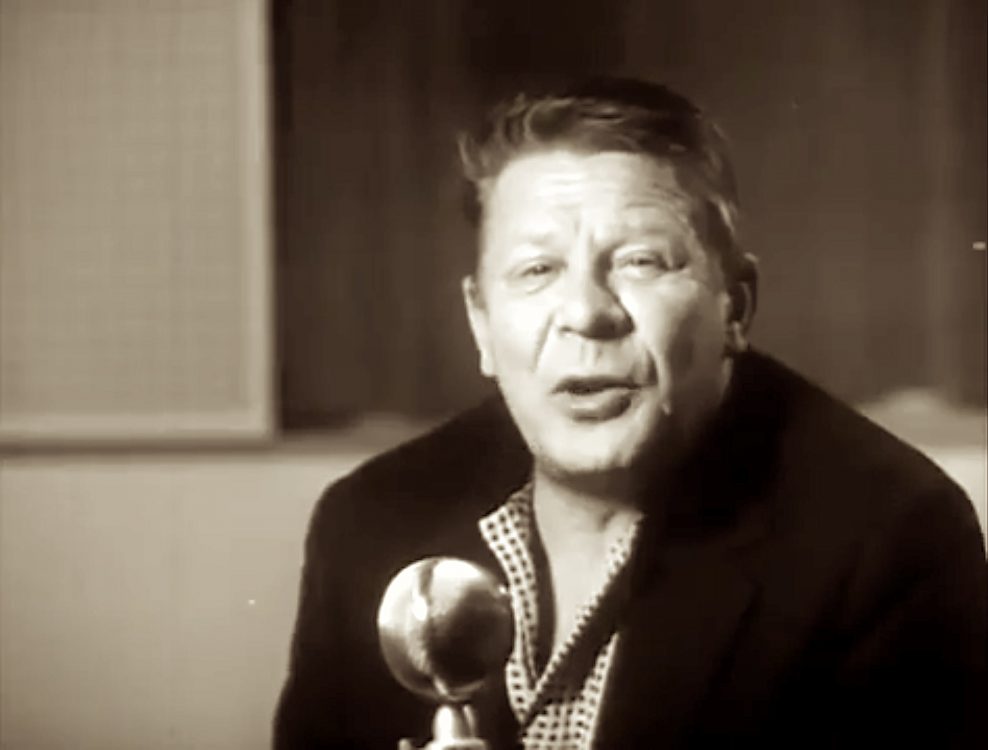
Leonid Pylayev aka Leonid Pavlovsky in the late 1950s. A most useful Soviet CIA propagandist. Charismatic scum.
Leonid’s life story is murky, but enough is known to gather a rough picture.
He was born in Russia probably in 1916 in a smallish city north of Moscow — either in Dmitrov, Kostroma, or Pokrov.
He was a talented and charismatic guy. He could sing, play musical instruments, and wrote his own jokes and songs. He was also ambitious and wanted to advance in the Soviet system. So he joined the Communist Party’s young wing — the Komsomol — which was like the communist equivalent of getting an MBA. But then disaster struck.
Sometime in the mid-1930s, he ended up in a Siberian prison camp — either for possessing forbidden literature or writing songs that satirized the government.
He did his time and got out. Then the Nazis invaded.
He was 25 years old.
In 1941, Leonid was deployed to the defensive line being hastily thrown up around Moscow. And that’s where his career as a Soviet man came to an end.
Leonid was taken prisoner — just one poor Soviet kid among millions of Red Army soldiers captured in the early blitz invasion. His chances for survival? They were almost non-existent. The Nazis shot, starved, or froze to death nearly three million Soviet prisoners in those opening months of the war.
But somehow he survived long enough to get an offer that he could not refuse: join Andrei Vlasov’s Russian Liberation Army, an all-Russian division being put together by the Germans to fight against the Soviet Union.
How did he manage to make in the camps?
Well, that’s not entirely clear. Luck probably had a lot to do with it. His charisma and the fact that he could play music, tell jokes, and entertain, explains the rest. He was a guy that everyone loved and that everyone wanted to hang out with. These are always winning qualities — and especially in a grim place like a Nazi POW camp.
The next four years of Leonid’s life murky. But from what can be cobbled together from various sources, one thing is clear: Leonid probably didn’t do much fighting.
In all likelihood he was assigned to do agitprop with the Russian Liberation Army. Based on German records discovered by a Russian amateur historian, in 1943 he started work at The New Way, a Nazi Russian-language newspaper run out of occupied Belarus.
The paper ran was like many of papers run under Nazi occupation. Most of its best real estate was dedicated showcasing German victories over the Red Army and blaming the war on Judeo-Bolshevik conspiracies. On the inside pages, you’d get soft features about how great life was in Germany, literary criticism, jokes and songs, capsules about global current events. There were even classifieds and wedding notices.
Records show that Leonid wrote for the The New Way under a pseudonym “Vitaly Shamrov” — publishing short stories, poems, political satire, and “straight” reporting.
In one of his journalism pieces, he described the incredibly humane living conditions of Red Army soldiers captured by the Germans.
“People look very healthy here. You won’t see a single sign of starvation here. People in the camps get a daily ration of 600 grams of bread (the same as a German soldier), 60 grams of meat, 30 grams of butter,” he wrote. “Today, the camp got a visit from the propaganda division, which bought its musical instruments. There was singing, dancing, poetry readings. The prisoners were having a great time. I looked at their healthy faces and had no doubts. These people believe in their future. They have enough strength to survive this brutal time of war and they will return to their families in one piece and in good health.”
See, getting captured by the Nazis isn’t so bad! Hand in your vintovki comrades and surrender while you still have time!
The reality of course was that if you were captured you’d either be either shot or die a horrible death by freezing, starvation, slave labor, and disease. In Mauthausen, for example, the Nazis mass starvation and machine gunning operation reached such epic proportions that all the rotten blood and guts contaminated the local water supply. But that wasn’t not the PR line Leonid’s new masters wanted to circulate!
According to music historian Maksim E Kravchinskii, Leonid was prolific in his role as Nazi propagandist.
He even produced a book of anti-Soviet poetry, which was published under Nazi occupation and well received by the The New Way. “In his poetry, the poet does more than just call people to arms. With his caustic political poetry. he cleverly defeats the enemy while entertaining the tired soldier,” explained the reviewer. Leonid was not only funny, but good for Nazi collabo anti-Soviet morale!
Here’s a sample a chastushka, a kind of Russian comic peasant poem, he published in his book:
Roughly translated: The well was drying / in a village / Stalin is a sissy general / and shitty commander
Charismatic and talented, Leonid did alright in these new and chaotic circumstances. He was good at pretty much anything he did, and that included survival.
As one Soviet writer who ran in the same emigre circles in Munich described Leonid’s time as a Nazi collaborator: “People liked him. He’s upbeat, full of energy, and a good drinking partner. And he could always round up women who wanted to party.”
But this new good phase of his life wasn’t destined to last.
In May 1945, Leonid was in Prague when the Red Army took the city. A lot of his comrades from the Russian Liberation Army were captured and executed as traitors. But many managed to get away and walked west as fast they could to surrender to the Americans.
That’s how Leonid ended up in the displaced persons camp system inside the American Zone in Germany.
He was 29 years old.
The New York Times. January 20, 1946.
After World War II, Europe was a swirling mass of human misery. There were something like 8 million homeless people wandering around a totally destroyed landscape. They were famished, wounded, psychologically battered — a wreck. There was no food and no shelter and the place was overrun with crime and gangsterism and cynical exploitation by the occupying powers.
It wasn’t a place you wanted to be if you could help it. So most people did whatever they could to get back home.
But a core group — about a million people — wouldn’t budge.
Among them were Jews who had barely survived genocide and who refused to go back home to the places that had just tried to wipe them out. But the vast bulk of these displaced persons had more complicated trajectories.
They came from all over — Poland, Estonia, Ukraine, Hungary, Croatia, Russia — and had collaborated with the Nazis. They volunteered in death camps, administering the occupied territories, or served in the SS and other German military formations. Some had been active members of European fascist movements that had their own little genocides and fought against the communists in alliance with Nazi Germany. Lots of them were very ideological — committed fascists with plenty of throat-slitting and genocide experience. Others, like Leonid, were more opportunistic than anything else. They had done whatever it took to survive the war.
No matter how they arrived at collaborating with the Nazis, they knew that going back home would mean disaster — either a death sentence or a long vacation at a Siberian nature preserve. And so they stayed, living in UN-run camps in Western Germany, Austria, and Italy.
These camps swirled with anti-Soviet agitation, organized crime, prostitution, intra-fascist rivalries, deportations, and assassinations — from both “friendlies” and Soviet agents looking for revenge. And all of this existed in an environment of heavy recruitment by American and British spy agencies for all sorts of espionage, propaganda, and dumb guerrilla warfare schemes.
That was the world that Leonid found himself in after the war.
Cycling first through Frankfurt and then Dachau near Munich, he avoided being deported back to the Soviet Union and then scraped by the only way he knew how.
He worked for anti-Soviet Russian newspapers servicing the Nazi collabo communities and toured around Europe playing concerts for Russian laborers in Germany, France, and Belgium. According to some accounts, Leonid was still very much in the Vlasov Nazi collaborator orbit and did work with various Russian “veterans” groups, including the National Labor Alliance — one of the earliest Russian fascist exile groups active going back to the 1930s.
“Entertaining and creative, he can play the accordion, dance, drink a liter of vodka,” wrote Dmitry Dobrodeev, a Soviet emigre author who later hung out in Leonid’s circles in Munich. “He performs, agitates and he always finds women. After the war, there are a lot of women — German, Czech, Hungarian.”
With his unique talents and charm and his innate capacity for survival, he did better than most. Still, those early years after the war were tough life — chaotic and full of poverty.
Then, in 1952, a ray of sunshine appeared in his life.
Leonid met a young American journalist who worked for a brand new radio station that was being set up in Munich.
From then on, his life would be simple and routine: pump out anti-communist propaganda, collect your laundered CIA checks, and live life to the fullest.
And that is exactly what he did.
To be continued next week with: “Part Two: The Creation of Radio Liberation from Bolshevism.” Read about the project and subscribe.
ABOVE: Radio Liberation’s HQ was located in this building in Munich’s Oberwiesenfeld airport. This is what it looked like in 1940 under the Nazis.
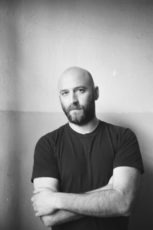 Yasha Levine is a Russian-American investigative journalist and author. Levine, who was born in the Soviet Union, is a former editor of Moscow-based satirical newspaper The eXile. He is the author of the 2018 book Surveillance Valley: The Secret Military History of the Internet. Join Yasha on Twitter, Yasha Levine (@yashalevine)
Yasha Levine is a Russian-American investigative journalist and author. Levine, who was born in the Soviet Union, is a former editor of Moscow-based satirical newspaper The eXile. He is the author of the 2018 book Surveillance Valley: The Secret Military History of the Internet. Join Yasha on Twitter, Yasha Levine (@yashalevine)
![]() This work is licensed under a Creative Commons Attribution-NonCommercial 4.0 International License
This work is licensed under a Creative Commons Attribution-NonCommercial 4.0 International License

Do people get the government they deserve?
This bloodsoaked monster is probably the most evil person on planet earth https://t.co/nGq2H1EPHt
— Ben Norton (@BenjaminNorton) April 9, 2020
• remember: ALL CAPTIONS, IMAGES, PULL QUOTES AND ANNOTATIONS BY THE EDITORS, NOT THE AUTHOR—
[premium_newsticker id="211406"]
Read it in your language • Lealo en su idioma • Lisez-le dans votre langue • Lies es in Deiner Sprache • Прочитайте это на вашем языке • 用你的语言阅读
[google-translator]

THIS WORK IS LICENSED UNDER A Creative Commons Attribution-NonCommercial 4.0 International License
OF INTEREST TO OUR READERS
Acclaimed by critics, Ron Ridenour’s incisive history of the struggle between the US and Russia, extending from the Bolshevik revolution to our day, plus a wide-ranging and comprehensive analysis of many cultural America features which continue to bolster the US drive for world domination, is now available in print at a discount price. It’s 564 pages packed with information, many critical but practically unknown facts, and an uncompromising revolutionary perspective on the colossal challenges confronting this generation. (Click here or on the image below to order.)
 |
|



